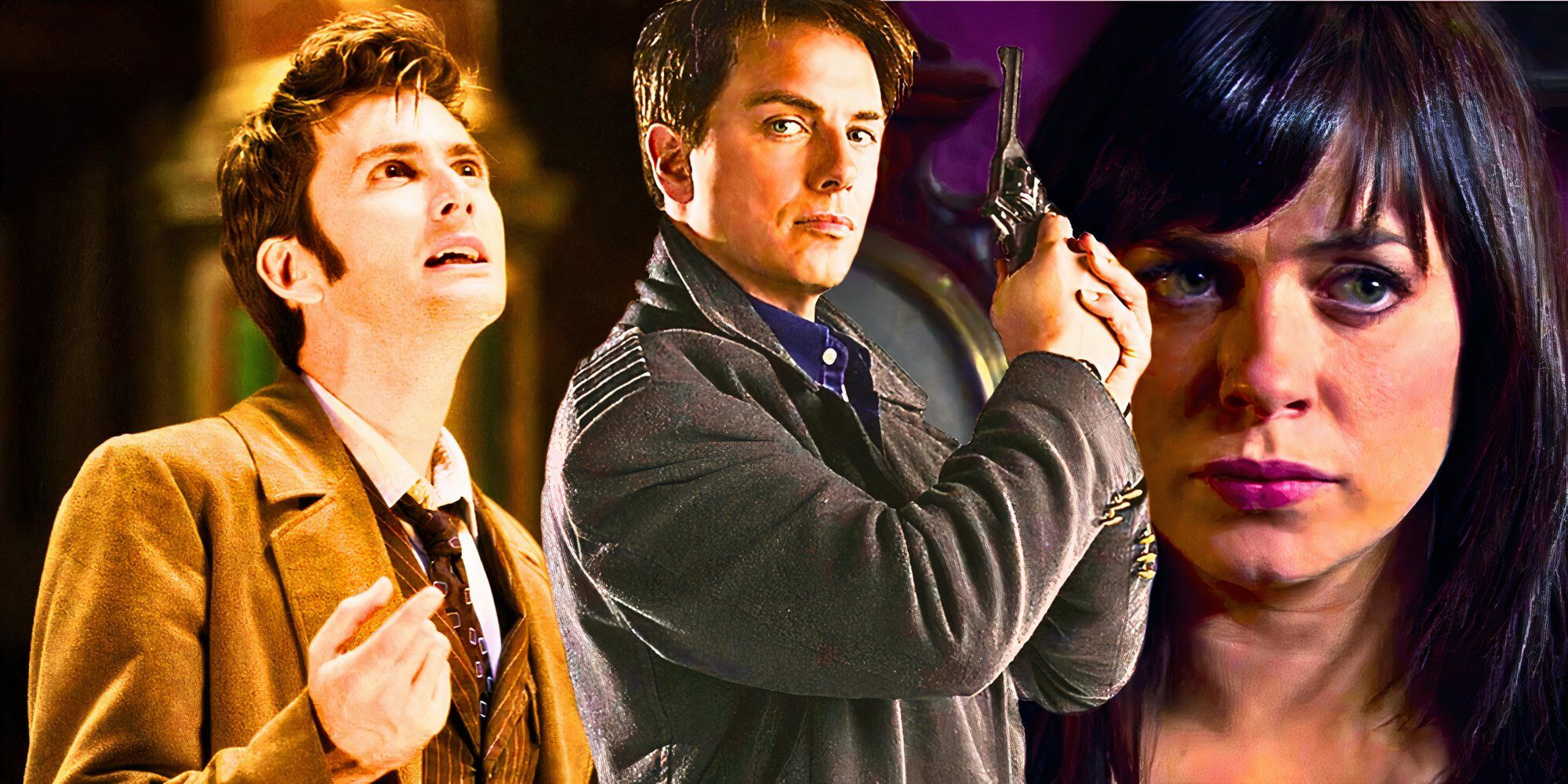David Tennant’s departure as the Doctor in Doctor Who was a moment of high drama, culminating in regeneration and the arrival of Matt Smith as the Eleventh Doctor. The transition, while familiar to Doctor Who fans, brought immediate changes, including a seemingly contradictory stance on companions compared to the outgoing Tenth Doctor. Just episodes after the Tenth Doctor declared he would never travel with a companion again, the Eleventh Doctor welcomed Amy Pond aboard the TARDIS. This raises a significant question: did the Eleventh Doctor break a promise made by his predecessor, or is there a deeper explanation at play within the lore of Doctor Who?
The nature of the Doctor’s regeneration has long been a point of discussion among fans. Each actor brings a unique interpretation to the Time Lord, leading to debates about the extent to which each regeneration is a distinct individual. While there’s no definitive answer, the swift contradiction of the Tenth Doctor’s strong statement by the Eleventh Doctor offers compelling evidence in this ongoing debate about the Doctor’s evolving identity across regenerations, a discussion that remains vibrant in Doctor Who‘s modern era.
The Tenth Doctor’s Firm Stance on Solo Travel After Donna Noble
Following the emotional departure of Donna Noble at the end of Doctor Who season 4, the Tenth Doctor embarked on a series of adventures, often with temporary companions. In the 2009 special “Planet of the Dead,” a pivotal moment occurs when the Doctor encounters Lady Christina de Souza. Despite their successful adventure together, the Tenth Doctor firmly refuses Lady Christina’s request to join him permanently in the TARDIS. He delivers a resolute explanation, stating he can “never again” take on a companion due to the pain of loss he has endured. This declaration appears absolute, and at the time, there was no reason to doubt the Tenth Doctor’s sincerity or commitment to this solitary path. However, this vow is seemingly overturned when the Doctor regenerates into his eleventh incarnation, and quickly forms a close bond with Amy Pond, inviting her to share his travels through time and space.
“People have traveled with me and I’ve lost them. Lost them all. Never again.”
– The Tenth Doctor, “Planet of the Dead.”
This swift change in attitude could be interpreted in several ways. One perspective might suggest the Doctor is indecisive, regretting his promise to Christina and succumbing to loneliness after regeneration. Alternatively, it could portray the Eleventh Doctor as reckless, disregarding the dangers companions face after the Tenth Doctor’s painful experiences. However, the core concept of regeneration in Doctor Who provides a more nuanced explanation. Regeneration is not merely a physical change; it’s depicted as a fundamental rewriting of the Doctor’s personality, albeit with the retention of past memories. Therefore, the Eleventh Doctor isn’t breaking the Tenth Doctor’s promise; he is operating under a fundamentally different persona and set of emotional responses. The Eleventh Doctor, in essence, possesses a distinct philosophy regarding companionship compared to his tenth incarnation.
Regeneration as a Catalyst for Change: The Tenth and Eleventh Doctor’s Philosophies
While David Tennant briefly returned as the Fourteenth Doctor for the Doctor Who 60th-anniversary specials, and despite some subtle differences, he largely embodied the familiar characteristics of the Tenth Doctor from 2005-2010. This continuity was essential for showrunner Russell T. Davies, who had to navigate the narrative carefully to avoid creating contradictions with established Doctor Who lore, particularly concerning the Tenth Doctor’s promise. It was understandable that the Eleventh Doctor, a fresh regeneration, would have a different outlook, but having the returning Tenth (now Fourteenth) Doctor contradict his earlier self would have undermined the emotional weight of Tennant’s original departure and the established rules around regeneration. Davies successfully maintained consistency, ensuring the Fourteenth Doctor’s actions aligned with the spirit of the Tenth Doctor’s era.
Related to this careful balance is the fact that the Fourteenth Doctor’s return and interactions also reinforced the distinction between regenerations. The actions of the Eleventh Doctor, and subsequently the careful considerations around the Fourteenth Doctor, highlight that each regeneration brings a shift in the Doctor’s personality and approach to life, relationships, and even promises.
Firstly, the Fourteenth Doctor did not actively seek out new companions. His reunion was with Donna Noble, a companion deeply rooted in his Tenth Doctor incarnation’s past. Furthermore, their journey in “Wild Blue Yonder” was unintentional, a consequence of unforeseen circumstances rather than a deliberate choice to resume TARDIS travels with a companion. Finally, the narrative suggests the Fourteenth Doctor was subconsciously drawn back to Donna for a period of rest and familiarity, seeking solace with a cherished friend rather than a renewed appetite for adventure across time and space. In essence, the Fourteenth Doctor’s initial actions were the antithesis of the companion-seeking Eleventh Doctor and the promise-making Tenth Doctor. Doctor Who is yet to fully reveal the Fourteenth Doctor’s future trajectory, but his initial portrayal emphasized a Doctor seeking respite, further underscoring the distinct phases and philosophies within the Doctor’s long and complex timeline.
Success!

